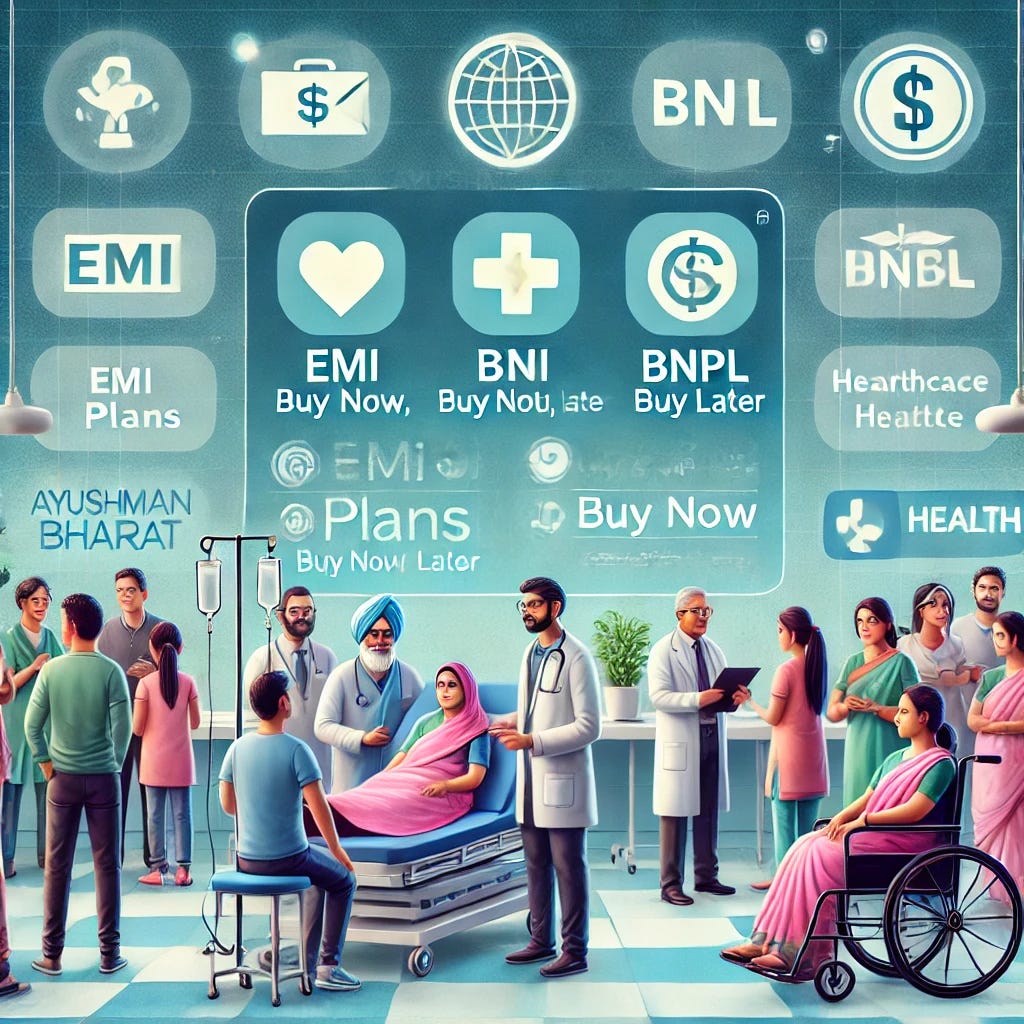Transforming Healthcare Access in India through Affordability Financing
Affordability financing, including BNPL options, is revolutionizing healthcare access in India by making quality medical treatments more affordable and accessible.
Access to healthcare in India has long been a challenge, particularly for the lower and middle-income segments of the population. High out-of-pocket expenses, limited insurance coverage, and the rising cost of medical treatments have often made quality healthcare an elusive dream for many. However, the advent of affordability financing, including innovative solutions like Buy Now, Pay Later (BNPL), is reshaping the landscape, making healthcare more accessible and affordable.
The Current State of Healthcare in India
India's healthcare system is characterized by a dual structure, with a significant portion of the population relying on public healthcare facilities, which are often overburdened and under-resourced. On the other hand, private healthcare, while offering better quality and quicker services, is prohibitively expensive for a large segment of the population. According to the National Health Profile 2021, out-of-pocket expenditure constitutes nearly 62.7% of total health expenditure in India, highlighting the financial strain on households.
The Role of Affordability Financing
Affordability financing refers to various financial products and services designed to ease the burden of healthcare costs. These include health insurance, medical loans, BNPL options, and innovative payment solutions that spread out the cost of medical treatments over time. Such financing options are crucial in bridging the gap between the high cost of healthcare services and the financial capacity of patients.
Key Players and Innovations in Affordability Financing
Several startups and financial institutions in India are at the forefront of this transformation, offering innovative solutions to make healthcare more affordable:
Practo: Initially a platform for booking doctor appointments, Practo has expanded its services to include healthcare financing. Through partnerships with financial institutions, Practo offers easy EMI options for various medical treatments, making it easier for patients to manage their healthcare expenses.
AffordPlan: This fintech startup focuses on helping families save for their medical expenses through customized saving plans. AffordPlan collaborates with hospitals to offer patients the flexibility to save and pay for their treatments over time, reducing the immediate financial burden.
Arogya Finance: Arogya Finance provides unsecured medical loans to individuals who need financial assistance for medical treatments. By offering loans without the need for collateral and with quick approval times, Arogya Finance ensures that patients can access the care they need without undue delay.
Bajaj Finserv Health EMI Card: This card allows patients to convert their medical bills into affordable EMIs, which can be paid back over a period ranging from 3 to 24 months. This service is available at a wide network of hospitals and clinics, making it a convenient option for many.
BNPL Options
The BNPL model, popularized by companies like ZestMoney and LazyPay, is gaining traction in the healthcare sector. These platforms allow patients to receive medical treatments immediately and pay for them in installments over time, without incurring high-interest rates. This model is particularly beneficial for those who need urgent care but lack the immediate funds to cover the costs.
Government Initiatives and Regulations
The Indian government has also played a crucial role in enhancing healthcare access through various initiatives and regulations:
Ayushman Bharat – Pradhan Mantri Jan Arogya Yojana (PMJAY): Launched in 2018, this scheme aims to provide health insurance coverage of up to INR 5 lakh per family per year to over 100 million vulnerable families. PMJAY covers a wide range of medical treatments and ensures cashless and paperless access to services at the point of care.
National Health Stack (NHS): An initiative by the National Institution for Transforming India (NITI Aayog), NHS is a digital framework that aims to create a robust and unified health system. It includes components like the Health ID, Health Data Consent Manager, and the DigiDoctor platform, which collectively enhance the efficiency and accessibility of healthcare services.
Impact and Future Prospects
The impact of affordability financing on healthcare access in India is evident in the increased number of people seeking timely medical treatment. According to a report by the World Bank, health insurance coverage in India has increased from 25% in 2015 to nearly 37% in 2021, indicating a positive trend towards better healthcare access.
Furthermore, with the growing adoption of digital health platforms and fintech solutions, the future of healthcare financing looks promising. Innovations in telemedicine, AI-driven diagnostics, personalized healthcare financing plans, and the BNPL model are set to revolutionize the sector further.
Conclusion
Affordability financing is playing a pivotal role in transforming healthcare access in India. By easing the financial burden on patients and ensuring that quality healthcare is within reach for a larger segment of the population, these financial solutions are paving the way for a healthier and more equitable society. As the landscape continues to evolve with technological advancements and supportive government policies, the vision of accessible healthcare for all seems increasingly attainable.


